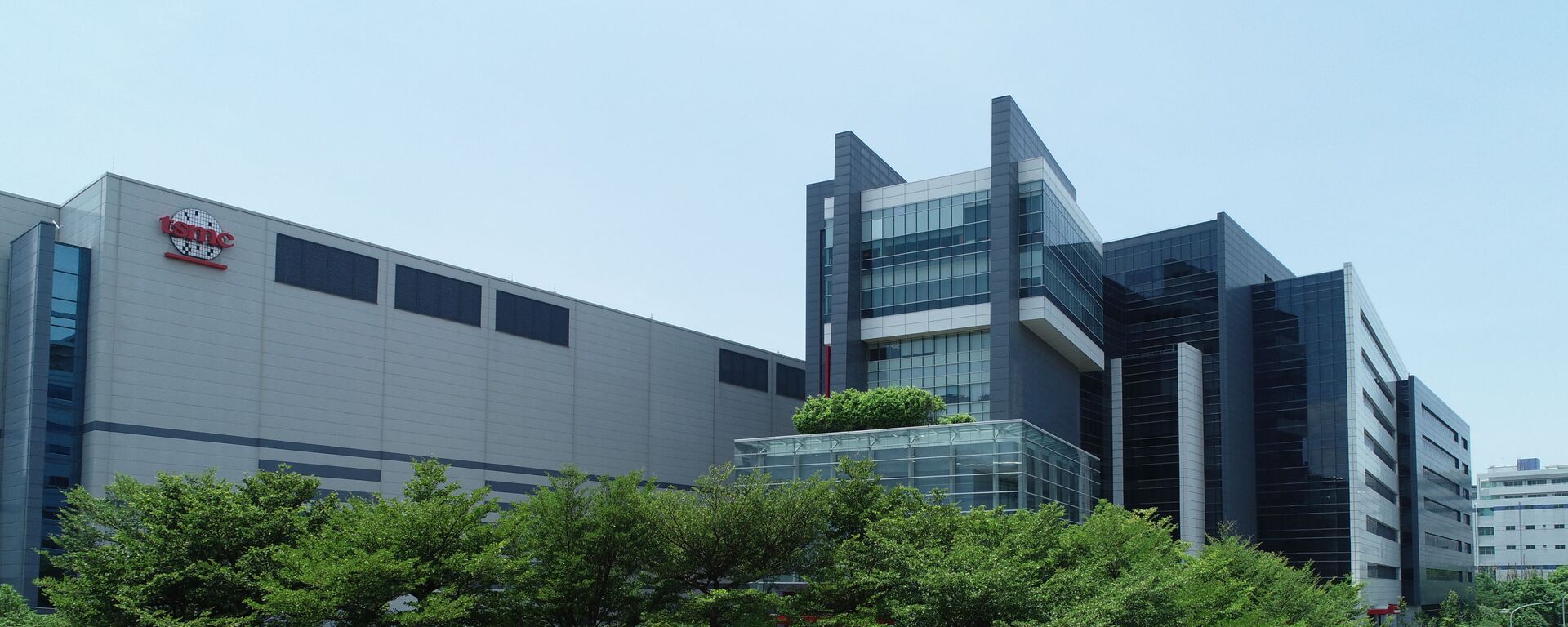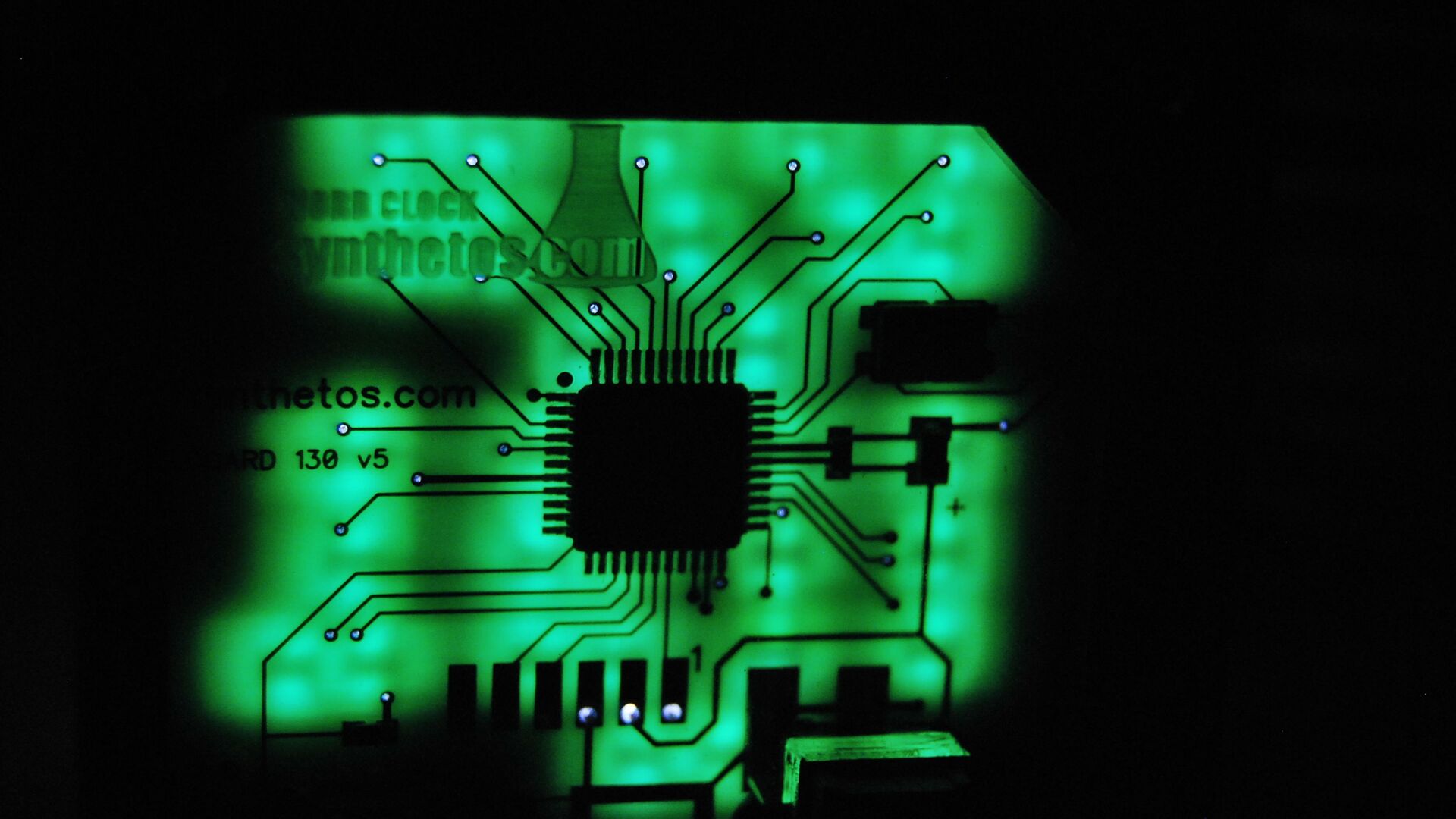https://sputnikglobe.com/20221013/us-issues-one-year-waivers-to-tsmc-sk-hynix-samsung-to-continue-making-microchips-in-china-1101826731.html
US Issues One-Year Waivers to TSMC, SK Hynix, Samsung to Continue Making Microchips in China
US Issues One-Year Waivers to TSMC, SK Hynix, Samsung to Continue Making Microchips in China
Sputnik International
The US has backed off a plan to try and force Taiwan Semiconductor Manufacturing Co. (TSMC), the world’s largest contract chipmaker, to abandon its expansive... 13.10.2022, Sputnik International
2022-10-13T22:23+0000
2022-10-13T22:23+0000
2022-10-13T22:23+0000
world
microchip
taiwan semiconductor manufacturing company (tsmc)
samsung
sk hynix
waiver
china
https://cdn1.img.sputnikglobe.com/img/107918/74/1079187450_0:105:3059:1826_1920x0_80_0_0_4f5c8bb3cbc58f5f2a0b4739a510319f.jpg
TSMC said on Thursday it had secured a one-year license from the US Department of Commerce to operate its wafer foundries in Nanjing that produce advanced 28-nanometer and 16-nanometer microchips.South Korean chipmakers SK Hynix and Samsung were given an identical waiver on Thursday.The Biden administration rushed to give both companies waivers ahead of the activation of new export rules on Friday, which will ban sales of certain chips used in advanced artificial intelligence calculations and supercomputing to buyers in China.However, it won’t be easy: China is the world’s largest buyer of semiconductors, buying a majority of South Korean output each year and using them to produce 36% of the world’s electronics.The US is especially keen to protect Taiwan’s microchip industry, which produces more than 90% of the world’s advanced semiconductors. According to Bloomberg, the US National Security Council expects a $1 trillion impact to the world economy in the event of a military conflict between China and the government in Taiwan, which Beijing considers to be a province in rebellion. So essential are Taiwan’s microchip engineers that the US reportedly has plans to airlift them out in case of a Chinese attack.When TSMC announced its plan last year to expand its Nanjing facility to increase production from 28,000 to 40,000 28-nanometer microchips per month, Taipei readily signed off on the proposal, but Washington tried to shut it down, with Friday’s rule change being the culmination of that effort.The high demand for electronic products during the COVID-19 pandemic has produced a profound global shortage of microchips, impacting manufacturing plans for products as diverse as automobiles and exercise equipment.
https://sputnikglobe.com/20220922/us-treasury-chief-says-taiwan-only-source-of-advanced-semiconductors-poses-national-risk-1101105788.html
china
Sputnik International
feedback@sputniknews.com
+74956456601
MIA „Rossiya Segodnya“
2022
News
en_EN
Sputnik International
feedback@sputniknews.com
+74956456601
MIA „Rossiya Segodnya“
Sputnik International
feedback@sputniknews.com
+74956456601
MIA „Rossiya Segodnya“
microchip, taiwan semiconductor manufacturing company (tsmc), samsung, sk hynix, waiver, china
microchip, taiwan semiconductor manufacturing company (tsmc), samsung, sk hynix, waiver, china
US Issues One-Year Waivers to TSMC, SK Hynix, Samsung to Continue Making Microchips in China
The US has backed off a plan to try and force Taiwan Semiconductor Manufacturing Co. (TSMC), the world’s largest contract chipmaker, to abandon its expansive campus in Nanjing, on the Chinese mainland.
TSMC said on Thursday it had secured a one-year license from the US Department of Commerce to operate its wafer foundries in Nanjing that produce advanced 28-nanometer and 16-nanometer microchips.
“The one-year US authorization for tool imports into the Nanjing foundry that TSMC has received covers both the 28nm and 16nm,” Wendell Huang, chief financial officer at TSMC, said during the company’s third-quarter earnings conference call, according to the
South China Morning Post (SCMP).
The Biden administration rushed to give both companies waivers ahead of the activation of
new export rules on Friday, which will ban sales of certain chips used in advanced artificial intelligence calculations and supercomputing to buyers in China.
The new rules come after US President Joe Biden
signed the CHIPS Act into law in August, which aims to move microchip manufacturing supply lines into “friendly” countries, as well as the US mainland, as part of Washington’s continuing struggle to
isolate China and Russia.
However, it won’t be easy: China is the world’s largest buyer of semiconductors, buying a majority of South Korean output each year and using them to produce
36% of the world’s electronics.

22 September 2022, 20:08 GMT
The US is especially keen to protect Taiwan’s microchip industry, which produces more than 90% of the world’s advanced semiconductors.
According to Bloomberg, the US National Security Council expects a $1 trillion impact to the world economy in the event of a military conflict between China and the government in Taiwan, which Beijing considers to be a province in rebellion. So essential are Taiwan’s microchip engineers that the
US reportedly has plans to airlift them out in case of a Chinese attack.
Accordingly, TSMC has looked to diversify its locations, building a
facility in Arizona for producing 5-nanometer chips and is reportedly pursuing another facility in Japan.
When TSMC announced its plan last year to expand its Nanjing facility to increase production from 28,000 to 40,000 28-nanometer microchips per month,
Taipei readily signed off on the proposal, but Washington
tried to shut it down, with Friday’s rule change being the culmination of that effort.
The high demand for electronic products during the COVID-19 pandemic has produced a profound global shortage of microchips, impacting manufacturing plans for products as diverse as automobiles and exercise equipment.



